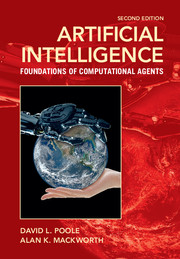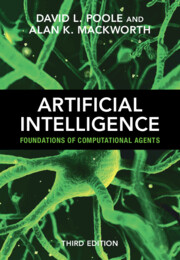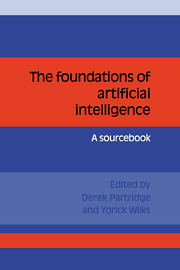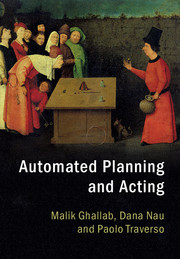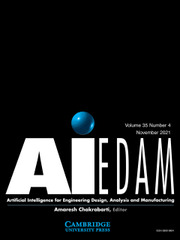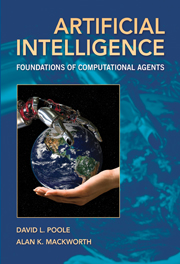Artificial Intelligence
Artificial intelligence, including machine learning, has emerged as a transformational science and engineering discipline. Artificial Intelligence: Foundations of Computational Agents presents AI using a coherent framework to study the design of intelligent computational agents. By showing how the basic approaches fit into a multidimensional design space, readers learn the fundamentals without losing sight of the bigger picture. The new edition also features expanded coverage on machine learning material, as well as on the social and ethical consequences of AI and ML. The book balances theory and experiment, showing how to link them together, and develops the science of AI together with its engineering applications. Although structured as an undergraduate and graduate textbook, the book's straightforward, self-contained style will also appeal to an audience of professionals, researchers, and independent learners. The second edition is well-supported by strong pedagogical features and online resources to enhance student comprehension.
- Rich online supplementary resources include comprehensive Python code, problems, animations and lecture slides
- Provides three complementary software systems - Python, AILog and AIspace - for experimentation and extension
- Pedagogical features include examples, bolded key terms, end-of-chapter reviews, further reading lists and exercises
Reviews & endorsements
'This new edition of the already classic Introduction to Artificial Intelligence by Poole and Mackworth provides a broad coverage of the symbolic and non-symbolic approaches underpinning the main current and future approaches to AI. It combines an accessible treatment of the underlying theory with practical examples that bring the theory to life. It is essential reading for anyone who wants to understand the current state of the art, and to be prepared for the future.' Robert Kowalski, Imperial College London
'Poole and Mackworth provide a crystal clear introduction to artificial intelligence. Their book paints a complete picture of the field, from the logical foundations to the latest breakthroughs in learning, representation, reasoning, and multi-agent systems. The authors view AI as the integration of a diverse set of technologies. Layer by layer, they introduce all the techniques required to build an intelligent agent. The book stands out as being both comprehensive and uncompromising, limiting the material to the most promising and intellectually gratifying topics.' Guy Van den Broeck, University of California, Los Angeles
Product details
No date availableAdobe eBook Reader
9781108173773
0 pages
0kg
Table of Contents
- Part I. Agents in the World: What Are Agents and How Can They Be Built?:
- 1. Artificial intelligence and agents
- 2. Agent architectures and hierarchical control
- Part II. Reasoning, Planning and Learning with Certainty:
- 3. Searching for solutions
- 4. Reasoning with constraints
- 5. Propositions and inference
- 6. Planning with certainty
- 7. Supervised machine learning
- Part III. Reasoning, Learning and Acting with Uncertainty:
- 8. Reasoning with uncertainty
- 9. Planning with uncertainty
- 10. Learning with uncertainty
- 11. Multiagent systems
- 12. Learning to act
- Part IV. Reasoning, Learning and Acting with Individuals and Relations:
- 13. Individuals and relations
- 14. Ontologies and knowledge-based systems
- 15. Relational planning, learning, and probabilistic reasoning
- Part V. Retrospect and Prospect:
- 16. Retrospect and prospect
- Part VI. End Matter: Appendix A. Mathematical preliminaries and notation.

